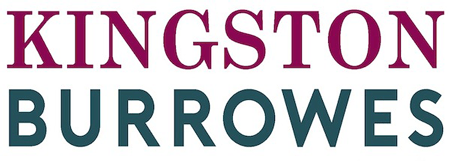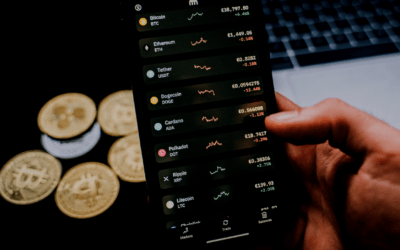Since HMRC introduced Making Tax Digital (MTD) in 2019, it has become increasingly important that businesses consider cloud accounting, or accounting software, as it is also commonly known. The arrival of MTD for VAT in April 2022 now means that VAT registered businesses must use compatible software to submit their VAT returns, and this will soon be followed by MTD for Income Tax Self-Assessment (ITSA) in 2024.
But with so many cloud accounting software choices out there, all with their own advantages and limitations, how do you know which one is right for your business. We don’t have the answer of course, because the solution will be different for every business, but we can get you starting to think about what you need to consider and how to do your research.
Bookkeeping software for small and medium businesses
Cloud Accounting began its journey as Bookkeeping Software and as with all software in recent years, it has come a long way from its complex origins as a solution designed purely for large businesses. Today’s online accounting software is highly adaptive and designed to meet the needs of individual businesses, whether it be an SME or someone who is self-employed. And what’s more, the options available are inexpensive (or in some cases even free).
If we consider just the basics of cloud accounting software, these programs are designed to help you with your bookkeeping, invoices and purchase orders, but they will also track your profits and losses, your VAT and your cash flow.
The Benefits of Cloud Accounting Software
Cloud Accounting programs offer several benefits:
- access to your bookkeeping/financial information from any location
- immediate (real-time) reporting
- ability to share financial reports with other stakeholders
- backup and recovery of data as well as security features such as multi-factor authentication
- no requirement for installation of the software locally, therefore no IT expertise required
Making a comparison of cloud accounting software
So how do you begin to compare the options? The number of programs available can be overwhelming so we have summarised the key factors we think you should consider when it comes to choosing a cloud accounting solution.
Customer service
You will more than likely need customer support at some point when using your new software. So, it’s worth bearing in mind the type of service offered and at what cost. Some of the cheaper programs don’t necessarily include this support as standard but it is always worth paying the additional charge to make sure you can get help if needed. Additionally, if you work unusual hours or late at night etc, will you be able to get the support you need at that time?
What functionality do you need?
This is one of the key considerations when starting your research. Think about what features you need to help run your business. These are just some of the functions that a business might require.
- Invoicing
- Sales tracking
- Inventory management
- Budgeting
- CRM function
- Payroll
- Merchant account support (for credit card payments)
- Estimating
- Business tax reporting
Is the software compatible with Making Tax Digital
As of April 2022, all VAT registered businesses must keep digital records and submit their VAT return through HMRC compatible software. While all the main providers should be compatible, always double check this using the HMRC online tool.
Does it offer multiple currencies?
Not all programs offer this, and if you regularly do business in dollars or euros, you need to make sure this function is available to you. Bear in mind that those that do offer this function, usually charge more than the standard price.
Will the software link to your bank account?
This could potentially save you a lot of time if the software is compatible with your bank. Having the option to download transactions from the bank will make it much easier to keep an eye on your cash flow and allocate your income and expenditure.
Do the VAT options suit your business?
If you are VAT registered (or think you may become VAT-registered in future), you should ask yourself the following:
- Does the software support cash and invoice accounting for VAT?
- Does it support the Flat-Rate VAT scheme?
- Are VAT returns produced automatically?
- Can the VAT return be submitted directly to HMRC from the program?
Additionally, if your business needs to follow complex VAT rules such as Reverse Charge calculations, you need to be sure that the software has this functionality. Not all accounting software does, and this could result in errors on your VAT return without this feature.
What is the user interface like?
Or in simpler terms, is the program easy to use?
If you or others that will be using the software don’t have an accounting background, you will need to select software that can be easily used by anyone, regardless of their experience. Focus on a simple interface with the key features that you need as opposed to an overloaded interface with unnecessary and distracting features. This will make it more straightforward to focus on key tasks and will simplify the learning process for everyone in the early stages.
What type of Reports does it produce?
This all depends on what reports your business will need as different programs offer different options.
Some of the more common reports include:
- Monthly profit and loss (inc comparison of last 12 months)
- Monthly balance sheet reports (covering assets, liabilities and capital balance)
- Top customer/supplier reports
- Aged debtors and creditors – 30, 60, 90 day periods
- Profit & Loss overview for the current year, including tax liability
By thinking about the way in which your business operates and the reporting features that will be most important, you can identify which accounting software will meet these requirements.
Is there an invoice template that will work for your business?
It should be possible to customise your invoice template, but some accounting software offers more flexibility than others. Perhaps you need to include detailed terms and conditions or other unusually descriptive elements and these may not be easily incorporated on all programs.
Can it be connected to your self-assessment tax return?
It is possible for some cloud accounting systems to extract information relating to salary and dividend payments that have been received from the business, and to connect this to your personal self-assessment tax return. This option provides a time saving benefit and also minimises manual errors on your personal return.
Popular Cloud Accounting Systems
Once you have thought about the way in which your business operates and how you might need cloud accounting to work for you, take a look at the software options and consider their merits and limitations in relation to your needs. Some of the better known and more popular cloud accounting providers are listed below.
- FreeAgent – aimed at freelancers and small businesses with focus on admin tasks such as invoicing and expense management.
- Sage Business Cloud Accounting – offers software suited to small businesses and provides broad functionality such as invoicing, cashflow and payroll.
- QuickBooks – one of the most established software providers. Suited to the self-employed and small businesses with lots of reporting tools.
- Xero – one of the most well-known providers with extensive functionality across day-today and reporting tasks.
- Zoho Books – one of a suite of Zoho apps which can be linked to other apps such as Zoho Invoice and Zoho Expense.
- Freshbooks – suited to freelancers and small businesses due to its simple and user-friendly interface.
Need More Advice
At Kingston Burrowes, we have extensive practical experience using a range software packages. If you are still uncertain about what software might work best for your business, feel free to get in touch. Our approach is flexible so if we believe one system will work better than another for your specific needs then we will advise you as such.




